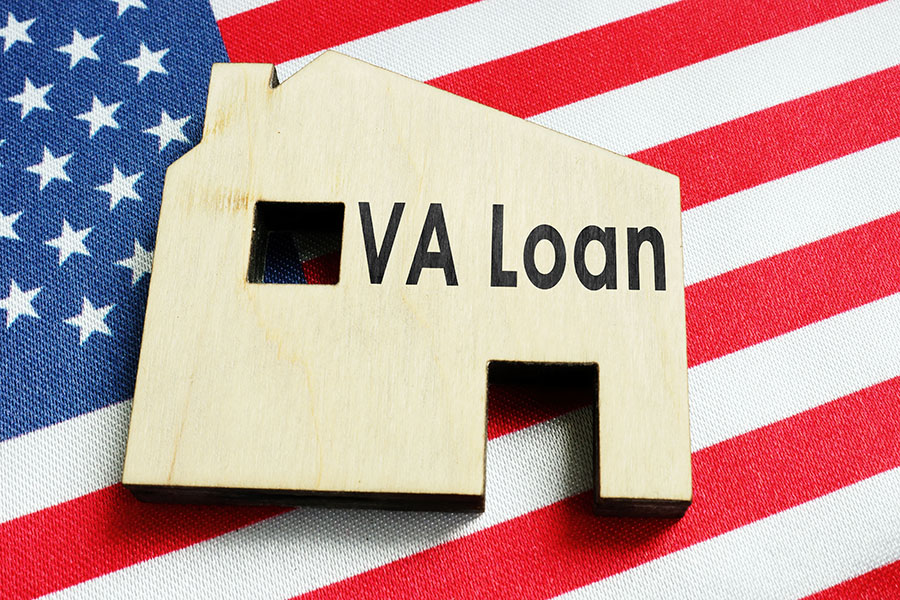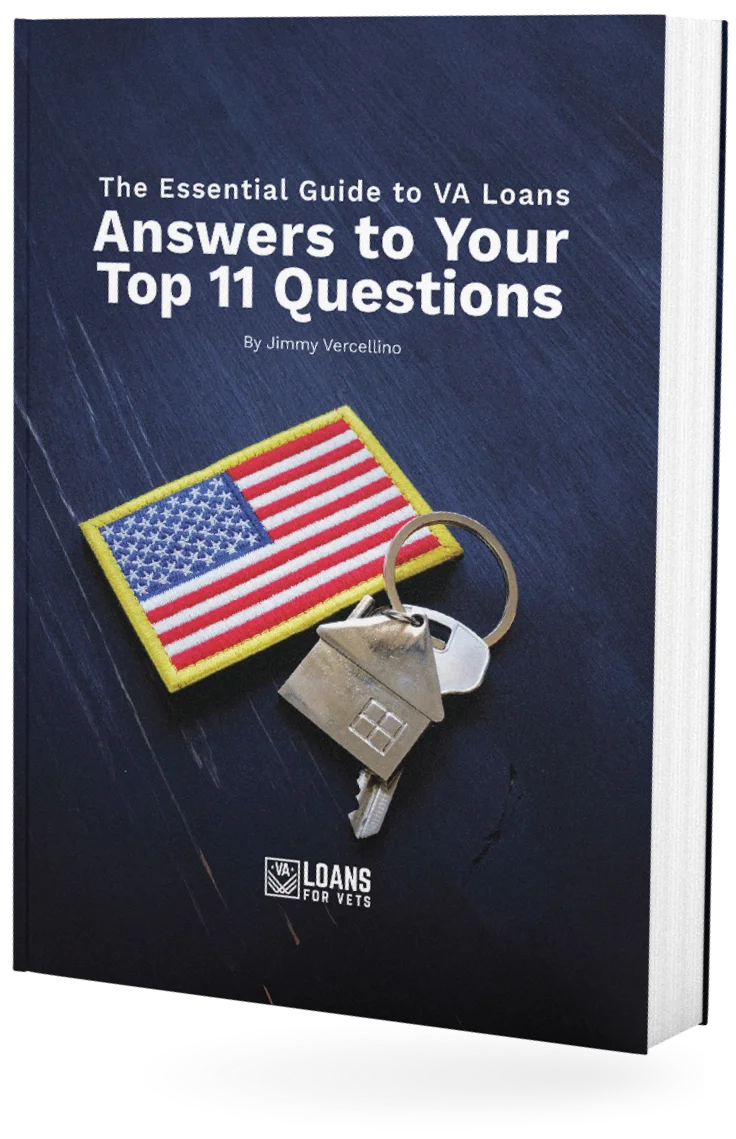I want to talk about a topic that’s super important for veterans looking to buy their dream home: VA Jumbo Loan Limits. Now, if you’re not familiar with VA jumbo loans, don’t worry – I’ll break it all down for you. In a nutshell, a VA jumbo loan is a type of VA loan that allows veterans to borrow above the standard VA loan limit. This can be a game-changer for those looking to purchase a higher-priced home, especially in more expensive housing markets.
But here’s the thing – the factors that determine your VA jumbo loan limit can get a bit complicated. You’ve got county loan limits, entitlement, credit scores, and more to consider. And if you don’t understand how these pieces fit together, it can be tough to figure out how much you can actually borrow.
That’s where we come in. As a veteran myself and an expert on VA loans, I’ve helped countless veterans navigate the world of VA jumbo loans. I know firsthand how confusing it can be, but I also know how rewarding it is when you finally unlock the door to your dream home.
So, in this post, we’re going to dive deep into the factors that impact VA jumbo loan limits. We’ll talk about county loan limits, entitlement, down payments, credit requirements, and more. By the end, you’ll have a clear understanding of how VA jumbo loans work and what you need to do to qualify.
What is a VA Jumbo Loan?
Alright, let’s start with the basics: what exactly is a VA jumbo loan? In simple terms, a VA jumbo loan is a VA-backed mortgage that exceeds the standard VA loan limit. These limits vary by county, but as of 2021, the standard limit for most counties is $548,250.
So, if you’re looking to buy a home that costs more than that, you’ll likely need a VA jumbo loan. This is where things start to differ from regular VA loans.
With a regular VA loan, the VA guarantees a portion of the loan, usually 25%. This guarantee acts as a safety net for lenders, allowing them to offer more favorable terms to veterans. However, when you’re dealing with loan amounts above the standard limit, the VA’s guarantee doesn’t cover the full 25%.
This is where VA jumbo loans come into play. While the VA will still provide a guarantee on these larger loans, the exact amount can vary. This means that lenders may have slightly different requirements for VA jumbo loans, such as higher credit scores or larger down payments.
But here’s the good news – even with these additional requirements, VA jumbo loans still offer some serious advantages for veterans. The most significant perk? No mortgage insurance premiums.
You see, with conventional loans, borrowers who put down less than 20% are typically required to pay private mortgage insurance (PMI). This can add hundreds of dollars to your monthly mortgage payment. But with a VA jumbo loan, you can avoid PMI altogether, even if you’re not putting 20% down.
Plus, VA jumbo loans still offer competitive interest rates and the ability to finance up to 100% of the home’s value in many cases. This can be a huge advantage for veterans looking to buy a higher-priced home without draining their savings on a massive down payment.
So, to recap – a VA jumbo loan is a VA-backed mortgage that exceeds the standard loan limit. While the requirements may be slightly different than a regular VA loan, VA jumbo loans still offer significant benefits for veterans, like no PMI and competitive rates.
Now that we’ve covered the basics, let’s dive into some of the specific factors that can impact your VA jumbo loan limit.
What are County Loan Limits for VA Loans?
One of the most important factors that determines whether you’ll need a VA jumbo loan is your county’s loan limit. You see, the VA doesn’t just pull these numbers out of thin air – they’re actually based on the median home prices in each county.
The VA uses data from the Federal Housing Finance Agency (FHFA) to calculate these limits each year. They look at the median home prices for single-family homes in each county and set the loan limit at 115% of that median price.
Why 115%? Well, the VA wants to ensure that veterans have a fair chance at buying a home in their area, even if prices are a bit above average. By setting the limit slightly higher than the median price, they give veterans a bit of wiggle room.
Now, let’s talk about some real-world examples. In most counties across the U.S., the loan limit for 2021 is $548,250. This means that if you’re buying a home in one of these counties, you can borrow up to that amount without needing a jumbo loan.
But what about more expensive areas? Well, that’s where things get interesting. In certain high-cost counties, the loan limits can be much higher. For example, in San Francisco County, California, the 2021 loan limit is a whopping $1,545,000. That’s nearly three times the standard limit!
Other high-cost areas include New York City, where the limit is $822,375 for all five boroughs, and Washington, D.C., where the limit is $822,375 for the district and surrounding counties.
So, what does this mean for you? Well, if you’re buying a home in a high-cost county, you may have more leeway before needing a jumbo loan. But if you’re in a county with the standard limit, you’ll need to be mindful of that $548,250 threshold.
Keep in mind, too, that these limits can change from year to year based on housing market conditions. So, even if you’re not ready to buy right now, it’s a good idea to keep an eye on the limits in your county.
Of course, county loan limits are just one piece of the puzzle when it comes to VA jumbo loans. Another key factor is your entitlement – let’s take a closer look at how that works.
What are VA Loan Entitlements?
Now, when we talk about VA loan limits, there’s another term you’ll hear a lot: entitlement. But what exactly does that mean? In short, your VA loan entitlement is the amount the VA will guarantee on your loan.
I like to think of it as the VA’s way of saying, “We’ve got your back.” They’re basically promising to repay a portion of your loan if you default, which gives lenders the confidence to offer you more favorable terms.
So, how much entitlement do you have? Well, for most veterans, the basic entitlement is $36,000. But here’s where it gets interesting – the VA actually covers up to 25% of your loan amount. So, if you’re buying a home at the standard limit of $548,250, the VA’s actual guarantee would be 25% of that, or $137,062.
But what happens if you want to buy a more expensive home? That’s where your bonus entitlement comes in. The bonus entitlement is the difference between your basic entitlement and the 25% guarantee on the loan limit in your county.
In high-cost counties, where the loan limits are higher, your bonus entitlement will also be higher. This means you can borrow more without needing a jumbo loan.
Now, here’s the really cool part – your VA loan entitlement can be used multiple times. Let’s say you bought a home a few years ago using a VA loan, but you’ve since sold that home and paid off the loan. Guess what? Your entitlement is now restored, and you can use it again on your next home purchase.
Or, let’s say you still own that first home, but you want to buy another one. In some cases, you may be able to use your remaining entitlement (the part you didn’t use on the first loan) to buy a second home. This is known as “second tier entitlement.”
But what about jumbo loans? How much entitlement do you need for those? Well, it depends on the loan amount and the county limit. Generally speaking, you’ll need to have enough entitlement to cover 25% of the difference between the loan amount and the county limit.
Let’s look at an example. Say you want to buy an $800,000 home in a county with a $548,250 limit. The difference between the loan amount and the limit is $251,750. So, you’d need enough entitlement to cover 25% of that difference, or $62,937.50.
If you have less than that amount of entitlement available, you may need to make a down payment to cover the difference. But don’t worry – we’ll dive into down payments more in the next section.
For now, just remember that your VA loan entitlement is a powerful tool that can help you buy the home of your dreams, even in high-cost markets. And if you’ve used your entitlement before, don’t assume it’s gone forever – in many cases, you can use it again and again.
Down Payments for VA Jumbo Loans
Alright, let’s talk about everyone’s favorite topic: down payments. When it comes to VA loans, one of the biggest perks is the ability to buy a home with no money down. But what about VA jumbo loans? Do you need a down payment for those?
The answer is… it depends. In many cases, you can still get a VA jumbo loan with no down payment. However, there are some situations where a down payment may be required.
It all comes down to your entitlement and the loan amount. Remember how we talked about needing enough entitlement to cover 25% of the difference between the loan amount and the county limit? Well, if you don’t have enough entitlement to cover that gap, you may need to make a down payment to make up the difference.
But don’t panic just yet – let’s break down how this works. Say you want to buy a $700,000 home in a county with a $548,250 limit. The difference between the loan amount and the limit is $151,750. So, you’d need enough entitlement to cover 25% of that, or $37,937.50.
If you have less than that amount of entitlement available, you’d need to make a down payment equal to 25% of the difference. In this case, that would be a down payment of $37,937.50.
Now, I know what you’re thinking – that’s a lot of money. But here’s the thing: even with a down payment, VA jumbo loans can still be a fantastic deal. You’re still likely to pay far less than you would with a conventional loan, and you’ll avoid costly mortgage insurance premiums.
Plus, let’s not forget that in many cases, you can still get a VA jumbo loan with no down payment at all. As long as you have enough entitlement to cover that 25% gap, you’re good to go.
And even if you do need a down payment, it may be smaller than you think. For example, let’s say you’re buying a $600,000 home in a county with a $548,250 limit. The difference is just $51,750, so you’d only need $12,937.50 in entitlement to avoid a down payment.
The bottom line? While VA jumbo loans may sometimes require a down payment, they’re still one of the best mortgage options out there for veterans. You can often buy with no money down, and even when a down payment is needed, it’s likely to be far lower than what you’d pay with other loan types.
So don’t let the idea of a down payment scare you away from considering a VA jumbo loan. With a little math and some careful planning, you may be surprised at how achievable your dream home really is.
Of course, there’s one more important factor to consider when it comes to VA jumbo loans: your credit score. Let’s take a look at how your credit can impact your ability to secure one of these powerful loans.
Other Factors to Consider for VA Jumbo Loans
Alright, folks, we’ve covered a lot of territory in this post. We’ve talked about county loan limits, entitlement, down payments, and credit scores – all critical factors when it comes to VA jumbo loans. But the truth is, there are a few other important pieces of the puzzle that you need to be aware of.
First up: debt-to-income ratio, or DTI. This is a big one, because it tells lenders how much of your monthly income is going towards debt payments. To calculate your DTI, lenders will add up all of your monthly debt obligations (things like mortgage payments, car loans, credit card minimum payments, etc.) and divide that number by your gross monthly income.
So, why does this matter for VA jumbo loans? Well, because these loans are larger, lenders want to make sure you’re not overextending yourself. They’ll typically want to see a DTI of 41% or lower for a jumbo loan. If your DTI is higher than that, you may need to pay off some debts before you can qualify.
Next on the list: cash reserves. When you’re taking out a big loan, lenders want to know that you have some extra cash on hand to cover unexpected expenses or temporary disruptions in income. For a VA jumbo loan, you may need to have anywhere from 2-6 months’ worth of mortgage payments in reserve, depending on the lender and your specific financial situation.
Another factor to consider is your loan-to-value ratio, or LTV. This is the amount of your loan divided by the value of the home you’re buying. The higher your LTV, the riskier the loan is for the lender. With a VA jumbo loan, you may need a lower LTV to qualify – often around 90% or less.
Now, I know this all might sound a bit overwhelming, especially if you’re new to the world of VA loans. But here’s the good news: you don’t have to navigate these requirements alone. Working with an experienced VA lender can make all the difference.
A knowledgeable lender will be able to look at your specific financial situation and help you figure out what you need to do to qualify for a VA jumbo loan. They can help you understand your entitlement, calculate your DTI, and figure out how much you might need for a down payment or cash reserves.
Plus, a good lender will be up-to-date on all the latest VA guidelines and requirements. They can help you avoid common pitfalls and make sure your loan stays on track from application to closing.
So, if you’re thinking about a VA jumbo loan, my advice is this: don’t go it alone. Find a lender who knows the ins and outs of VA loans and who can be your partner throughout the process. With the right support, you can make your dream of homeownership a reality – even in a high-cost market.
And that, my friends, is the skinny on VA jumbo loans. I hope this post has given you a better understanding of how these powerful loans work and what you need to do to qualify. Remember, as a veteran, you’ve earned this benefit – so don’t be afraid to use it!
VA Jumbo Loans Summary and Your Next Steps
Well, folks, we’ve covered a lot of ground today. We’ve talked about county loan limits, entitlement, down payments, credit scores, and a whole host of other factors that can impact your ability to secure a VA jumbo loan.
But if there’s one thing I want you to take away from this post, it’s this: VA jumbo loans are an incredible opportunity for veterans looking to buy their dream home, even in high-cost markets.
Yes, the requirements can be a bit more stringent than for a regular VA loan. You may need a higher credit score, a lower debt-to-income ratio, or a bit more in cash reserves. But don’t let that discourage you from exploring your options.
Remember, as a veteran, you’ve earned this benefit through your service to our country. And the best part? You can use it again and again. Even if you’ve used a VA loan in the past, you may still have entitlement available for a jumbo loan.
So, if you’re thinking about buying a home and you think you might need a VA jumbo loan, I encourage you to start exploring your options. Talk to a knowledgeable lender who can walk you through the requirements and help you figure out what you need to do to qualify.
And if you have any questions along the way, don’t hesitate to reach out to me. I’m passionate about helping veterans achieve their homeownership dreams, and I’d be honored to be a resource for you.
You can visit my website at VAloansforvets.com to learn more about VA loans and how I can help. Or, just give me a call or shoot me an email. I’m always happy to chat with fellow veterans about their homebuying goals.
At the end of the day, remember this: you’ve served our country with honor and distinction. You deserve a home that reflects that service and sacrifice. And with a VA jumbo loan, that home may be more within reach than you ever thought possible.
So, don’t wait. Start exploring your options today. And know that you have a whole community of veterans and VA loan experts behind you, cheering you on every step of the way.



